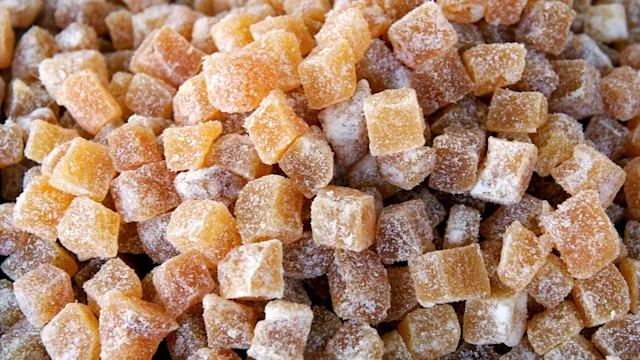Key takeaways:
Julie Balsamo was studying to be a registered dietitian while she dealt with gut and digestive issues.
She started researching gut health. When she changed what she ate and drank, she found that her health issues started improving.
She has incorporated five drinks into her diet because they help specific gut and digestive problems.
Julie Balsamo is a registered dietitian in Star Valley, Wyoming, whose whole family has always faced digestive issues. “My mom would say, ‘Oh, well, our family just handles stress in our stomach, and it is what it is.’”


In her early 20s, when Julie was working on a master’s degree in nutrition and dietetics, her stress levels — and stomach issues — skyrocketed. “It got to a point where there were only like five foods I could eat. I wasn’t using the bathroom. I had no appetite, because everything was making me feel extremely bloated,” she says.
She saw several gastrointestinal specialists, including one she waited several months to see, and that experience provided what she called a breaking point. “I was in that room for all of 5 minutes. The doctor felt my stomach, and the only recommendation was to take Miralax, drink more water, and eat more fiber. That was it.”
Search and compare options
She left upset and called her mom, who reminded her that she was studying to be a dietitian and told her to look deeper into nutrition.
A deep dive into gut health
Julie took her mom’s advice and started researching gut health, the microbiome, stress, and the brain-gut connection. She slowly changed what she ate and drank, and over the next 4 to 6 months, her digestive issues started getting better.

She also noticed significant improvements in other areas.
“My hair stopped falling out, my anxiety was improving, and my menstrual cycle became regular again,” she says.
“I was able to expand my diet and eat more foods. That’s when it kind of hit me: We think it’s just digestion-related, but our gut is like our second brain, and it impacts our immune system,” she says. “It impacts our skin health, our hormones, mental health conditions, and everything in between.”
While they’re not magic potions, here are 5 good drinks to try
Now, Julie has a practice where she offers remote nutritional coaching. She specializes in digestive health and coaches clients that there’s no one magic food or drink. But there are five drinks she recommends that people with digestive problems consider incorporating, alongside a healthy diet.
What are the signs of an unhealthy gut? If this list sounds familiar to you, you may have gut issues.
What are the best ways to improve your gut health? With lifestyle and dietary changes, most people can improve their gut health.
Can stress make you sick? Yes. Read about what too much stress can do to your body.

Here are the five drinks Julie recommends, as well as what they help with.
1. Bone broth
Bone broth, Julie says, is excellent for gut health. It’s rich in collagen, glycine, glutamine, and gelatin, all of which reduce inflammation and support your gut lining.
Quality matters, she says. Find a brand that cooks its broth for 24 hours or more, preferably one that uses bones from grass-fed animals. Julie saves bones in the freezer after a meal, and when enough accumulate, she cooks them for 24 to 36 hours in a slow cooker filled with water and a couple of splashes of apple cider vinegar. Then, she strains the broth and stores it in the freezer.
Read more like this
Explore these related articles, suggested for readers like you.
Bone broth tastes like regular broth, she says, but richer. She suggests drinking it plain, cooking rice in it, or using it in soups. She even makes hot chocolate with it. “It sounds odd, but it's actually quite good,” she says. “It’s a warm, nourishing drink that’s good if you don’t like the actual flavor of bone broth.”
2. Ginger tea
Ginger stimulates the production of gastric juices, which aid in the digestive process, and acts as an anti-inflammatory, Julie says. She suggests drinking the tea without sugar. But if you want to sweeten it, she recommends manuka honey, a type of honey native to New Zealand and Australia. It’s thought to have anti-inflammatory properties that can help coat the esophagus, providing a protective barrier that may reduce irritation caused by stomach acid.
Julie makes her own tea by buying ginger root at the supermarket, peeling and thinly slicing it, and boiling 1 inch of fresh ginger to 1 cup of filtered water for about 15 to 20 minutes. She strains the tea and stores any extra in the refrigerator.
3 & 4. Kombucha and kefir
Kombucha and kefir are fermented drinks. Both contain live probiotics, which promote a healthy, balanced microbiome.
“I generally recommend trying to incorporate at least one fermented food each day,” Julie says. “Kefir and kombucha are two really great ways to do that.”
A serving size is 1 cup, and a cup of kefir in a smoothie or with granola, or 1 cup of kombucha, are ways to promote gut diversity.
Julie says you can make kombucha, though it’s labor-intensive. “You have to go through two rounds of fermentation. We're looking at usually 3 to 4 weeks to make one batch of kombucha. I've done it, and it's not hard to do. It just takes time, and you have to make sure everything's sterilized so there’s no risk of contamination.”
5. Peppermint tea
Peppermint tea is known for its antioxidant properties and may help relieve bloating, Julie says. Peppermint also contains methyl salicylate, which naturally calms muscles in your digestive system.
You can drink it hot or iced. “I generally recommend getting organic,” Julie says. “But it’s not the end of the world if you don’t.”
As-needed and on-the-go
Julie adds these drinks to her own diet as needed. “I use all of them frequently. I wouldn't say I use them on a daily basis, but they're all part of my routine across the board.”
She also takes gut-health drink supplies with her when she travels. She brings packets of ginger tea in case of constipation and peppermint tea in case she feels bloated. You can even get bone broth on the go in powder form. “There are companies that make really awesome little bone broth packets,” she says. “It’s a powder you just add to water.”
Answers to gut issues
While these drinks can help with symptoms of digestive problems, Julie says it’s important to look further into identifying your specific gut issue. She advises someone with gut issues, digestive problems, and stomach pain to seek a better understanding of their digestive health. She remembers wanting more answers when she got a diagnosis of irritable bowel syndrome (IBS).
IBS is a common, lifelong condition that affects the intestines and can cause a range of gastrointestinal symptoms. Julie calls IBS “an umbrella term we use when we’re not sure what’s causing the symptoms” because it’s so broad.
For many people, she says, IBS is treatable, and you can significantly reduce your symptoms and improve your quality of life. She feels good 95% of the time now. She calls that a game-changer, because digestive problems earlier in her life made it hard to focus on anything but her health.
“You’re so focused on just trying to feel better and trying to improve your day-to-day,” she says. Finding out more about her digestive health and what works in her diet made her feel better mentally and physically.
Being able to improve your gut health lets you focus on other areas of your life, she says. “And then it’s almost like a domino effect. One thing impacts the other, and then you’re just in a much better place.”

Why trust our experts?





















